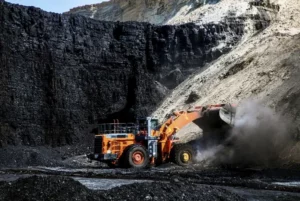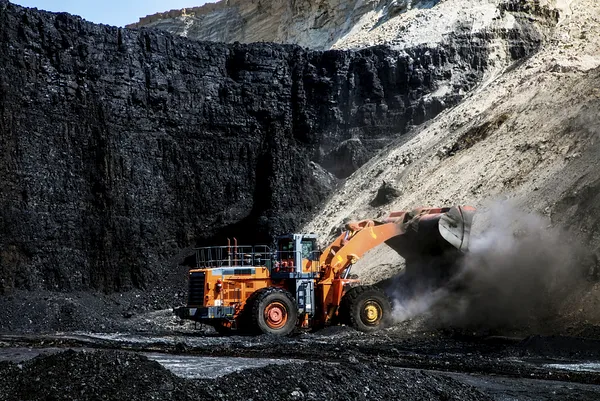An extension of the coal reduction policy to all lending will act as a strong impetus for Indian financial institutions to strengthen their own policies on coal reduction.
The International Finance Corporation (IFC) – the World Bank’s private sector arm – has issued an update to its Green Equity  Approach (GEA) policy saying that it will no longer allow financial intermediary clients to support new coal projects. Previously, the GEA only required clients to reduce their exposure by half by 2025, and to zero by 2030, but did not prevent new investments.
Approach (GEA) policy saying that it will no longer allow financial intermediary clients to support new coal projects. Previously, the GEA only required clients to reduce their exposure by half by 2025, and to zero by 2030, but did not prevent new investments.
“One of the key goals of the Paris Agreement is to ensure that financial flows are consistent with a pathway toward low emissions and climate resilient development. In 2020, IFC launched the Green Equity Approach (GEA) to help our financial institution (FI) clients continue to do business in a changing world. Under the approach, IFC has worked with FI clients where we have equity or equity-like exposures to increase their climate lending and reduce their exposure to coal-related projects in line with the Paris Agreement goals. This year (2023) IFC is taking the next step toward alignment with Paris Agreement ambitions by introducing an update to the GEA under which IFC will start requiring a commitment from FI clients to not originate and finance any new coal projects,” the IFC has said on its site.
Climate policy experts say that the previous GEA policy had “disastrous consequences” by allowing IFC clients to continue supporting new coal. The IFC’s very first GEA client, Hana Bank in Indonesia, financed two large new coal plants just a year after signing up with the GEA. Last year, IFC’s client PVI Holdings provided insurance to the Vung Ang II coal power plant in Vietnam.
India currently has a huge portfolio of financial Intermediary investments. There are 88 active financial intermediary investments close to the tune of US$ 5 billion. These financial intermediary investments include support for financial institutions which have footprints in energy, energy utilities and renewable energy investments.
These new guidelines should not be limited to only equity shareholding but extend to all lending done by IFC. An extension of the coal reduction policy to all lending will act as a strong impetus for Indian financial institutions to strengthen their own policies on coal reduction. The Indian financial sector is still at a nascent stage in adopting and implementing environmental and social safeguard (ESS) policies linked to lending. Institutions like IFC are in a position to exert pressure on Indian financial institutions to adopt ESS policies. Most Indian institutions have no ESS policies at all and the ones that claim to have ESG frameworks do not have accountability mechanisms or any provision to complain about the violations of the policies, making them ineffective.
In 2007, IFC made an equity investment in India Infrastructure Fund (IIF, the Fund), a private equity fund. IIF has made equity investments in energy and utilities, transport infrastructure, telecommunications, and other infrastructure solely in India. A portfolio investment of IIF was GMR Kamalanga Energy Limited (GKEL) a 1,400 MW coal-based power plant near Kamalanga village in Dhenkanal, a district of Odisha state.
In 2011, communities negatively impacted by the project had filed a complaint with the Compliance Advisor Ombudsman (CAO, independent accountability mechanism of IFC). The complaint voiced concern about disclosure of project information and transparency about potential environmental and social risks and impacts of the project, as well as more broad concerns about IFC’s financing role vis a viz financial intermediary investments.
The CAO released its compliance investigation in 2016 and identified a number of shortcomings in the IFC’s review and supervision of the fund. The report pointed out the failures on part of the IFC regarding environmental and social due diligence, disclosures and supervision. More than a decade down the line, the case is still in the monitoring phase and communities are still waiting for a remedy.
Joe Athialy from Centre for Financial Accountability said: “We filed the first ever case to the Compliance Advisor Ombudsman over IFC’s support to a financial intermediary client backing coal in India in 2011. It has taken thirteen years for the IFC to finally end support for new coal. In the meanwhile, communities got scattered, their livelihood stolen, and the climate crisis made it more severe, with nobody held accountable for all these, and more. We can only hope it moves faster to stop funding oil and gas.”
While the IFC’s new commitment has been broadly welcomed, campaigners have highlighted the need for the IFC to go further by excluding all coal, oil and gas investments in its plan to align its portfolio with the Paris Agreement. This strategy is expected to be announced during the 2023 World Bank Spring Meetings next week in Washington DC.
Photo : Rawpixel
This article was originally published in The Indian Express and can be read here.
Centre for Financial Accountability is now on Telegram. Click here to join our Telegram channel and stay tuned to the latest updates and insights on the economy and finance.

